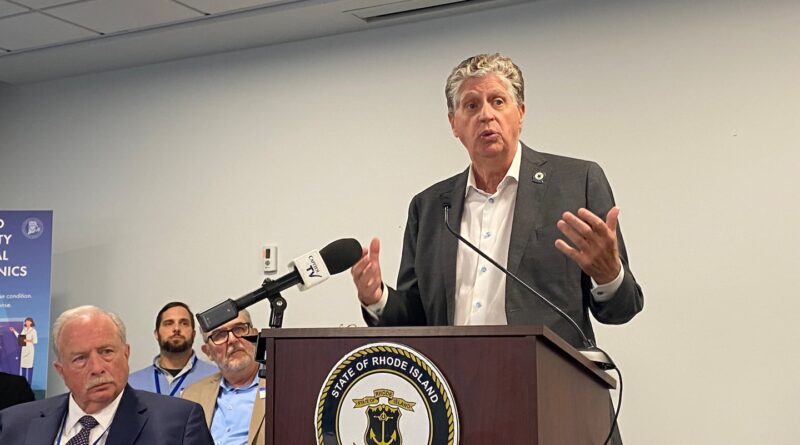‘Game changer’: Eight RI clinics now offer health services for the uninsured – The Boston Globe
Eventually, Moretti, now 60, found compassion at the Providence Center, where an “outside the box” approach helped put him on the road to recovery, and after a time, stability, he said.
But, perhaps, if he had gotten help sooner, if there had been more resources for the angry child in those dark days, Moretti believes it would have been “crucial in my transformation,” he said so.
He told the Globe: “Maybe I didn’t do a lot of things or I had a lot of things that I had.
Rhode Island officials and health professionals said Thursday they took a big step toward that kind of availability, as eight clinics around the state will now offer health services regardless of whether do consumers have medical insurance coverage – a move they say marks a “total. change” in making treatment affordable, especially for the state’s most vulnerable residents.
The locations, from Woonsocket to Newport, will serve customers regardless of their immigration status, age, screening, or ability to pay, officials said.
They include the Community Care Alliance in Woonsocket; Rhode Island Family Service in Providence; Newport Mental Health in Newport; Providence Center in Providence; Behavioral Health Hrive Warwick; and Gateway Healthcare locations in Pawtucket, Johnston, and South County.
Under the program, unstable clients will be billed on a sliding scale — with rates varying from clinic to clinic — while those who are unemployed or have no money will not be billed, according to Richard Leclerc, director of the Department of National Behavioral Health Care, Developmental Disabilities & Hospitals.
“This is a major development for behavioral health services in Rhode Island,” Richard Charest, secretary of the Executive Office of Health and Human Services, said at a press conference to announce the launch of the program in Cranston, R.I. .
“I have often referred to it as a revolutionary change, and we are confident that it will transform individuals and families across the country.”
The announcement comes amid a huge demand for mental health services across the country, particularly among children, as anxiety is becoming more common among children and young people.
“Our nation has a child health crisis, and Rhode Island does,” said Thomas Rodrigues, a licensed social worker with the Rhode Island Department of Family Services. “For too long, we’ve seen families face barriers that prevent them from accessing health services in a timely manner.”
With these clinics, Rhode Island officially joins 17 other states participating in the Medicaid-funded Certified Community Behavioral Health Clinics demonstration program, which requires designated clinics to provide a variety of services and 24/7 emergency services.
On that list of Rhode Island inspections, reviews, and risk assessments; mental rehabilitation; treatment planning based on you and the family; and outpatient primary care, mental health care, and substance abuse services, among others, officials said.
“Connectivity not only increases the number of children and adults our Rhode Island system can serve, but also provides that service in real time,” said Gov. Dan McKee.
For example, “mobile crisis response” will send experts to customers whenever they need them, Charest said in a statement.
“Whether you are seeking help for yourself or a loved one, CCBHC’s mobile teams are trained to assess a person with an emergency, de-escalate or de-escalate a crisis, and connect people to the right services. needed,” said Charest.
Rodrigues said providers can now provide “comprehensive, high-quality care, ensuring that individuals and families can get mental health and substance abuse programs where they need them most.”
Katie Hansen, program manager for Thrive Behavioral Health, said the program also allows the clinic to hire more staff and expand the treatment services it offers.
Officials announced that Rhode Island was selected to be among a group of 10 states selected to join the federal program in June. The Legislature appropriated $30 million to continue operations through 2022, and approximately $77 million was allocated in federal and state funds for services provided in the year of 2025 budget, said a spokesperson for the Executive Office of Health and Human Services. .
According to state officials, where the program has been started “have reported increased attendance, fewer emergency department visits and reduced law enforcement involvement.”
Christopher Gavin can be reached at christopher.gavin@globe.com.
#Game #changer #clinics #offer #health #services #uninsured #Boston #Globe
